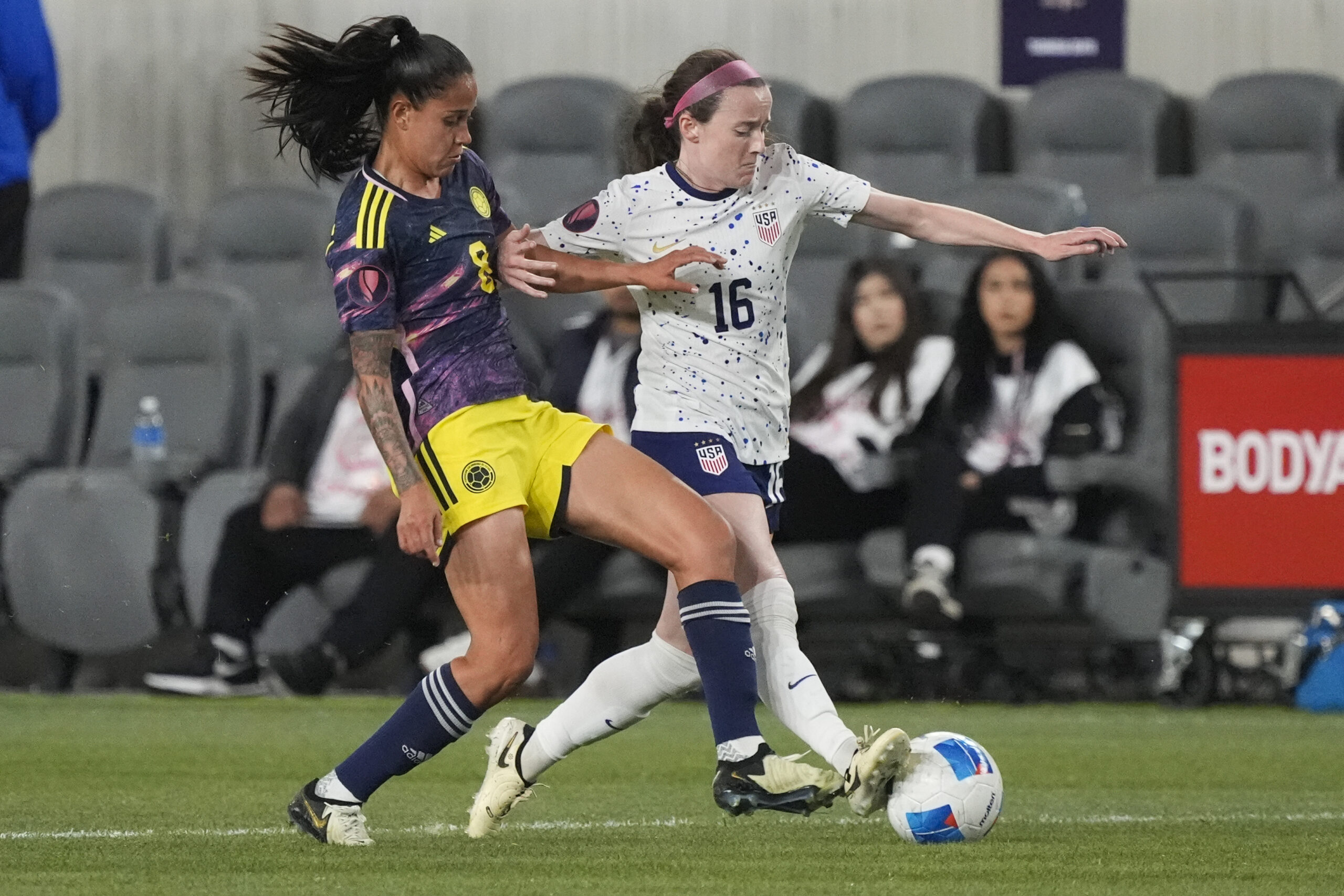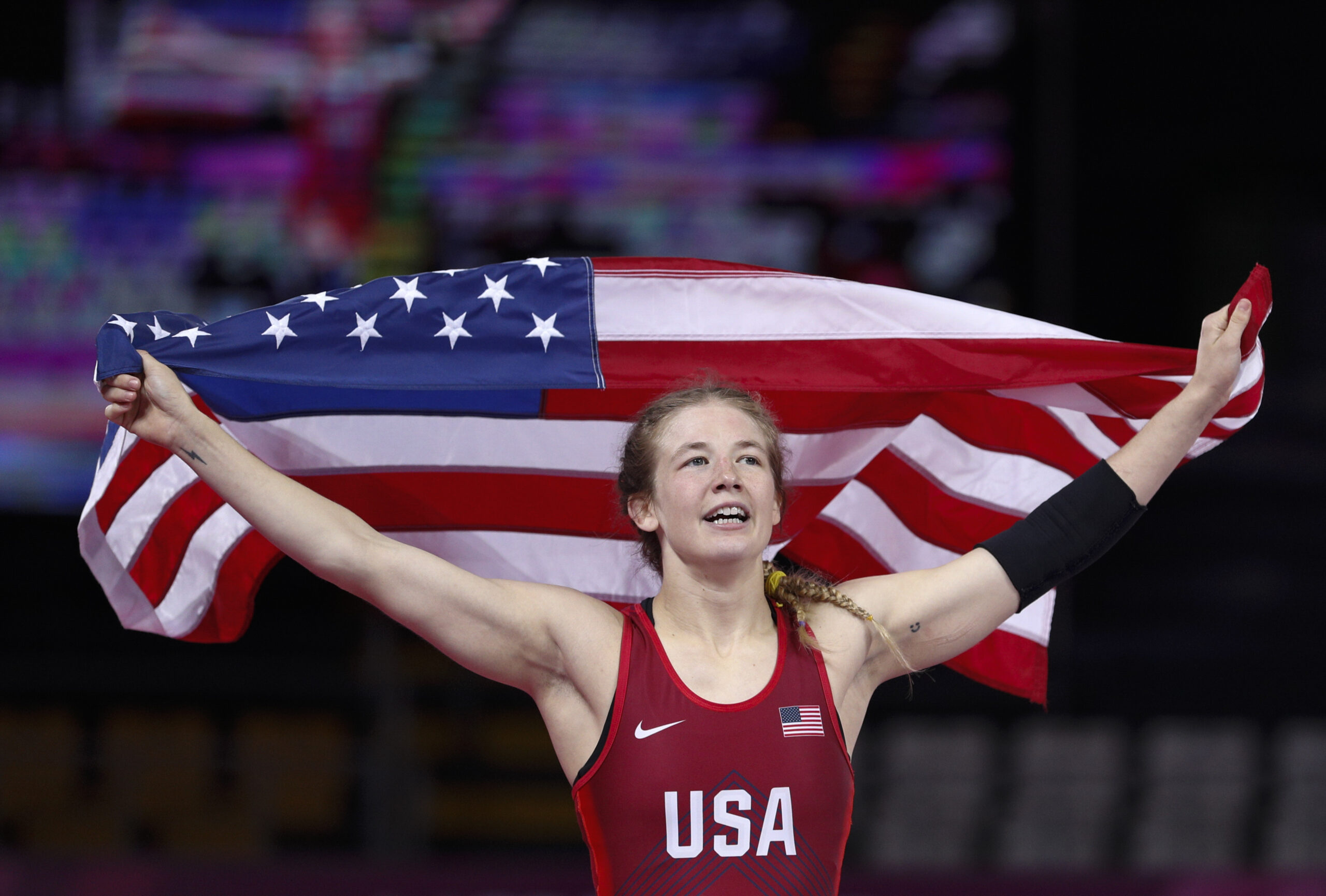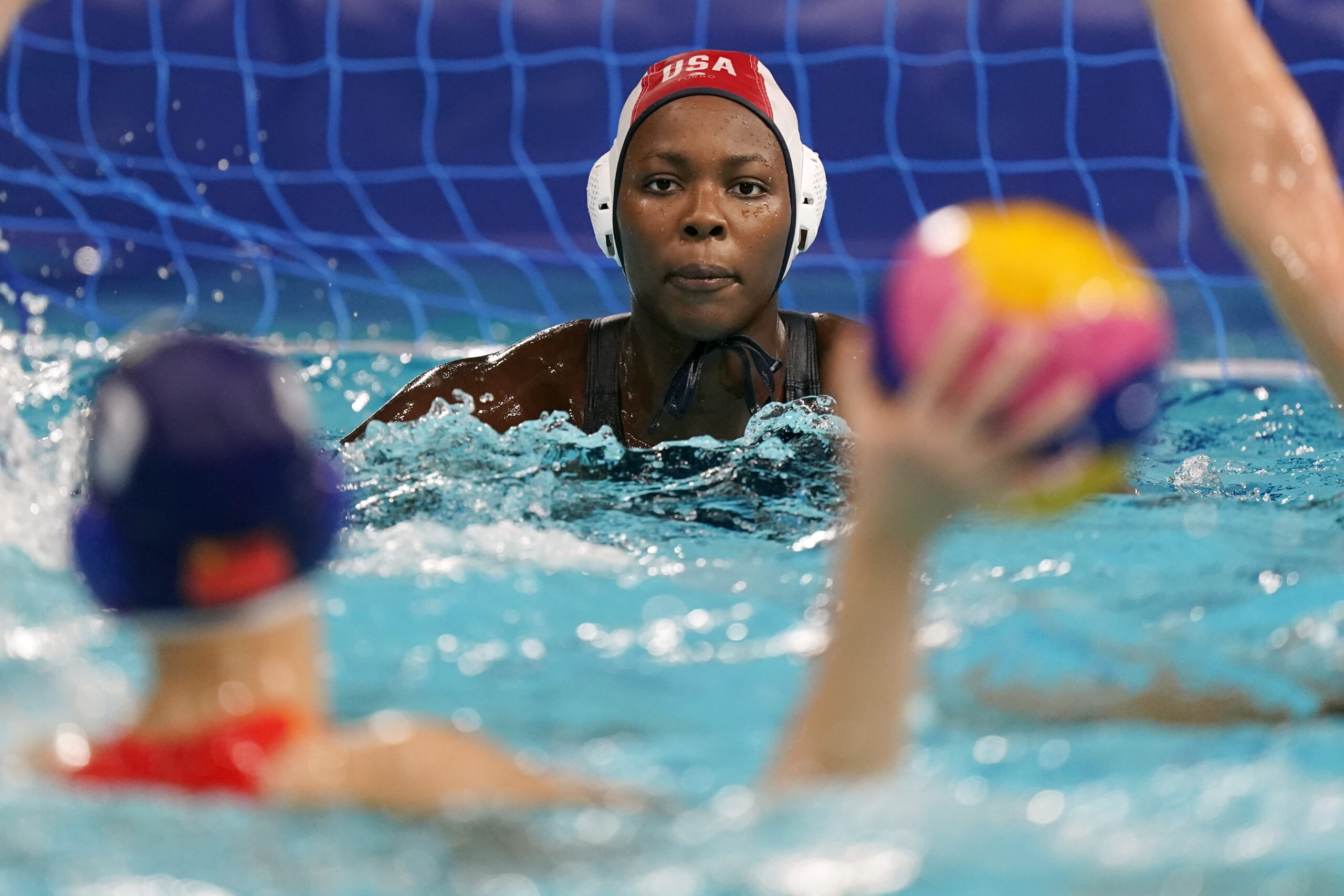
One of the main talking points ahead of the 2024 Olympic Summer Games has been numerical gender parity on the field of play with equal representation of male and female athletes.
Within the U.S. Olympic movement, that milestone has been the norm for multiple Games. The infrastructure around women’s sports has grown dramatically since the passage of Title IX more than a half-century ago — with ever-rocketing investment since the 2020 Games in Tokyo.
“The first time I personally experienced the buzz around women’s soccer was after (the 2019 FIFA Women’s World Cup),” said U.S. women’s national soccer midfielder Rose Lavelle. “I think now seeing continued growth, everybody in women’s sports knew the whole time how good it was. It’s really exciting to see everybody else figuring it out now. It’s not a moment, it’s here to stay and it’s going to keep growing and getting better.”
Sponsored Content
Athletically, the proof is in the numbers. At the 2016 Rio Games, women won 50.4% of the country’s overall medals; that number increased to 58.4% of the overall medals at the 2020 Tokyo Games. In 20 of the 27 Olympic Summer Games in which American men and women competed for medals, women have won a greater share of the available golds than men.
“I just have this immense sense of gratitude for people seeing and wanting to invest,” said USA Volleyball outside hitter Jordan Larson. “I think it’s only going to continue and grow and evolve. That landscape is changing so much too, it’s this fun rollercoaster to be a part of.”
The 2024 U.S. Olympic team is comprised of 314 females and 278 males, the fourth straight Games with more women on the U.S. roster than men. The growth that has been prominent from the WNBA to NWSL, Athletics Unlimited to collegiate and professional volleyball, is spreading to many other sports.
USA Wrestling women’s coach Terry Steiner said there are 45 states with girls wrestling sanctioned in high school, up from six in 2016. The NCAA Committee on Women’s Athletics has recommended Divisions I, II and III add a national collegiate women’s wrestling championship, with the projected first NCAA championship occurring in winter 2026.
“When I started wrestling in my high school, I wrestled on the boys team and I was probably one of three women in the whole state who wrestled and now there’s 40 girls on the team,” said wrestler Sarah Hildebrandt, who will compete at 50kg in women’s freestyle at the 2024 Games in Paris. “It’s skyrocketing right now and in a way it’s really emotional because I can see and remember where it started.”

Big Sports Reaping Big Attention
“In our sport I do feel the women do a phenomenal job of taking over,” said Gabby Thomas, a double medalist at the 2020 Games who will compete in the women’s 200 meters in athletics in Paris. “I grew up watching incredible women running and other than Usain Bolt, my focus was Allyson Felix, Sanya Richards Ross, Carmelita Jeter, I could see myself in their position. I’m really excited about where the sport has been and where it continues to go.”
Athletics is one of the most prominent sports at the Games each four years and the United States has a chief rival in Jamaica, which won three golds in track competition to equal the U.S. in Tokyo (the U.S. won two goals in field competitions). The increased competition in all sports is something that many U.S. athletes and coaches have noticed with each Olympiad.
“I don’t necessarily want the competition to be closer but if that’s what creates more interest, OK,” said USA Basketball women’s coach Cheryl Reeve, whose team will seek its eight successive gold medal. “The globalization of the game, while I understand it, if I’m USA Basketball, I don’t like it. I may be playing for France, but I’m not afraid of you because I’m playing against you (in the NBA). Or I start to believe that I can beat you because I had success against you in a WNBA game.”
And even if not competitive in Paris, the chance that another team or individual could be down the line is also a complement to the U.S. women’s sports ecosystem.
“Zambia in our opening match shows how much growth there is in the women’s game,” said U.S. women’s national team defender Crystal Dunn. “It’s incredibly important as a member of the national team that there’s a focus to grow the game, not just in this country. It’s one of those things where you really just want to celebrate how far women’s sports has come. That’s our opponent, but behind the scenes I can also sit here and root and cheer for how far they’ve come.”

Attention, Finances Coming to All Sports
The frenzy of attention around the NCAA Women’s Tournament, especially this year, to go with the increasing spotlight on women’s pro sports leagues is something athletes from other Olympic sports want to work to capture themselves.
“I’m obsessed with women’s sports,” said USA water polo attacker Maggie Steffans, “To be able to watch March Madness was amazing, obviously women’s soccer has been a leader. For us, how can we carry that torch into aquatic sports and water polo? To see how much growth has happened, how do we take what these women are doing in other sports and how do we make that torch brighter?”
“A win for any women’s sport is a win for all women’s sports,” added USA water polo goalie Ashleigh Johnson. “I think we’re going to see and we already are seeing the trickle-down effect of money, media, attention, interest for young girls in sport. …. More coverage, more money, more attention toward women’s sports is always a good thing.”
And with that attention and investment also comes competition and participation as veterans find themselves increasingly challenged to maintain their Olympic status.
“It’s wonderful to see women’s team sports catapulting and TV coverage,” said BMX rider Alise Willoughby. “I get to go to the local tracks all the time and see the number of girls on the track and every single year since I’ve been out there as a young girl myself, it’s grown and grown. The more people you see being able to make a career out of that, representation matters, right?”
And the representation then spurs on even more investment. The USA women’s field hockey team will be in Paris for the first time since 2016 after beating three teams ranked in the top 10 in the world at the 2024 FIH Hockey Olympic Qualifier in Ranchi, India. It was the most tangible sign of progress for the program since the national team moved its training to the U.S. Performance Center in Charlotte.
“Women’s sports visibility is incredibly important,” said USA field hockey goalie Kelsey Bing. “I wouldn’t be here today without the female role models that I saw on television when I was young and the female coaches that I had growing up. I hope our team can be a beacon for any young athlete regardless of gender and they get inspired for the Olympic movement like I did.”












 Copyright © 2025 by Northstar Travel Media LLC. All Rights Reserved. 301 Route 17 N, Suite 1150, Rutherford, NJ 07070 USA | Telephone: (201) 902-2000
Copyright © 2025 by Northstar Travel Media LLC. All Rights Reserved. 301 Route 17 N, Suite 1150, Rutherford, NJ 07070 USA | Telephone: (201) 902-2000